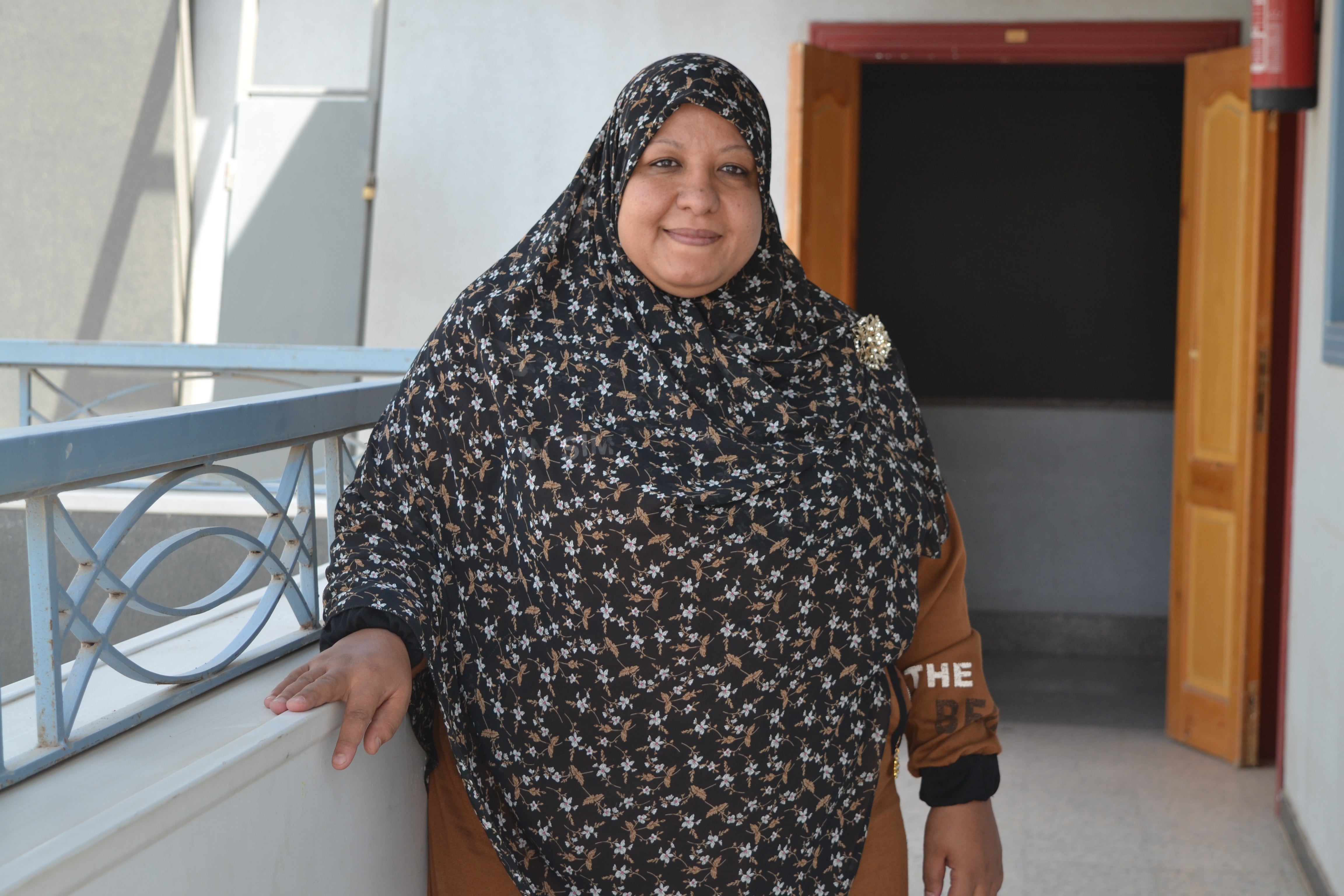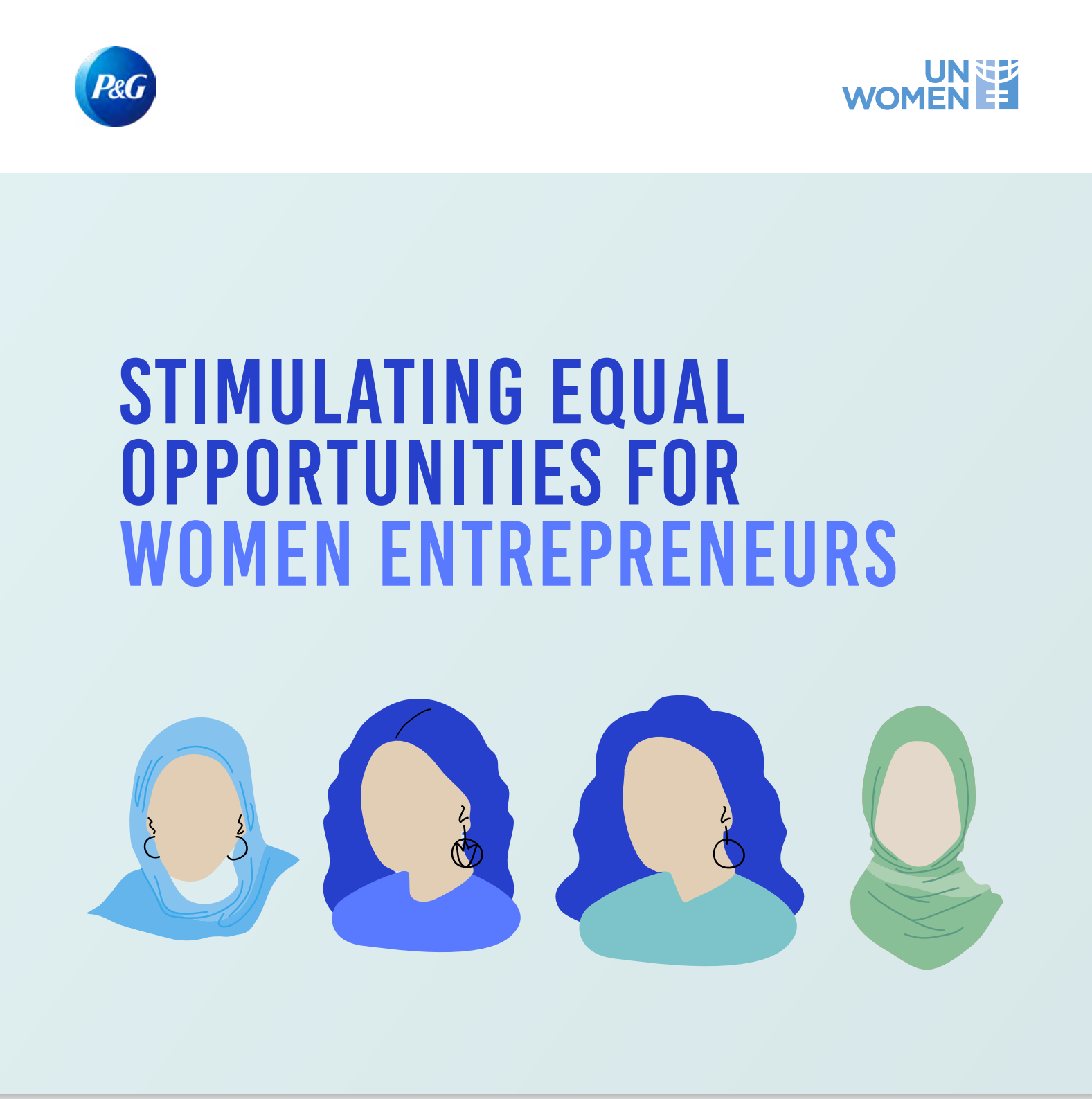In the words of Sayeda Fatehy: "I should always be moving forward and developing"
Date:

Amal, a mother of three in a remote village in Minya, had resorted to borrowing from neighbours after her husband lost his only source of income. That is when Amal decided to join the programme which she heard about from a neighbour.
“My husband is a truck driver – a job that provided enough money to sustain our household expenses. But this changed when his truck broke down and we couldn’t afford to fix it. He tried his best to get jobs here and there to provide for us, with no luck. Eventually, we had no choice but to borrow from family and neighbours just to get by. I felt helpless doing nothing. I wanted to do something for my family’s well-being, to be a backbone for my husband and to reclaim our dignity.
That is why I so appreciate the opportunity God brought my way at such a hard time. Honestly, I would have never imagined myself working and running a business if the opportunity had come at another time. After completing the in-person sales training and receiving the seed funding, my business partners (other trainees) and I had a plan to grow and expand the type of business we were trained on. So, we rented a little shop and began stocking it with sanitary pads as well as other consumables including food and beverages products.
As well-trained saleswomen, we didn’t want to passively wait for customers to knock on our door. We decided to act proactively and reached out to a client base we formed during the training period and offered to bring the items they needed to their doorstep – similar to the ‘delivery services’ provided in big cities. We also replicated the model we learned through the programme. On a rotating basis, we would rent a car that would take us to nearby villages to deliver and sell our products. Thanks to this approach, we opened great sales channels and were exposed to a wider customer base. Currently, we have become wholesale vendors for nearby supermarkets, which order with us by phone.
Due to my life experiences, I learned that it’s always better to have various streams of income. With my acquired sales skills, in parallel to my business with the group, I’m running my own business at home selling makeup and ready-made clothes to neighbours.
Life at home has changed completely. We have paid off our debts and no longer need financial support from anyone. When my children need money, I can provide it and I am able to buy them the groceries they like most. I also didn’t forget about myself. I can afford now to buy myself new clothes, as I need to be presentable for my business. At home, I also bought a new stove and a new fridge that I always dreamed of but couldn’t dare ask my husband for, given the hardship we were facing.
In the last phase of the programme, I was designated the Sales Supervisor – a role I felt proud to take on. I was scared in the beginning, having some doubts about my abilities. However, I managed to handle and coordinate a group of 11 women. I helped them with their sales’ journeys and gave them tips for success to start their own businesses following my life experience.”
The “Stimulating Equal Opportunities for Women Entrepreneurs” brochure summarizes the results of the strong partnership between UN Women and Procter and Gamble (P&G) that started in 2017 in support of women’s economic empowerment in Egypt and promote greater diversity and inclusion through equipping women entrepreneurs with the skills and support they need to access opportunities as potential suppliers and distributors. Women received trainings on business development, marketing, sales techniques, financial management and soft skills. Afterwards, selected women obtained funding to establish their own private business in the retail industry with many being integrated in the distribution channel of many large corporates including P&G, Juhayna, and Mars.
The “Stimulating Equal Opportunities for Women Entrepreneurs” programme is implemented in Beni Suef and Minya, within the framework of the global P&G/UN Women programme. This project is part of UN Women’s wider Women’s Economic Empowerment portfolio in Egypt, which is implemented in partnership with the Government of Egypt and in collaboration with the private sector.
